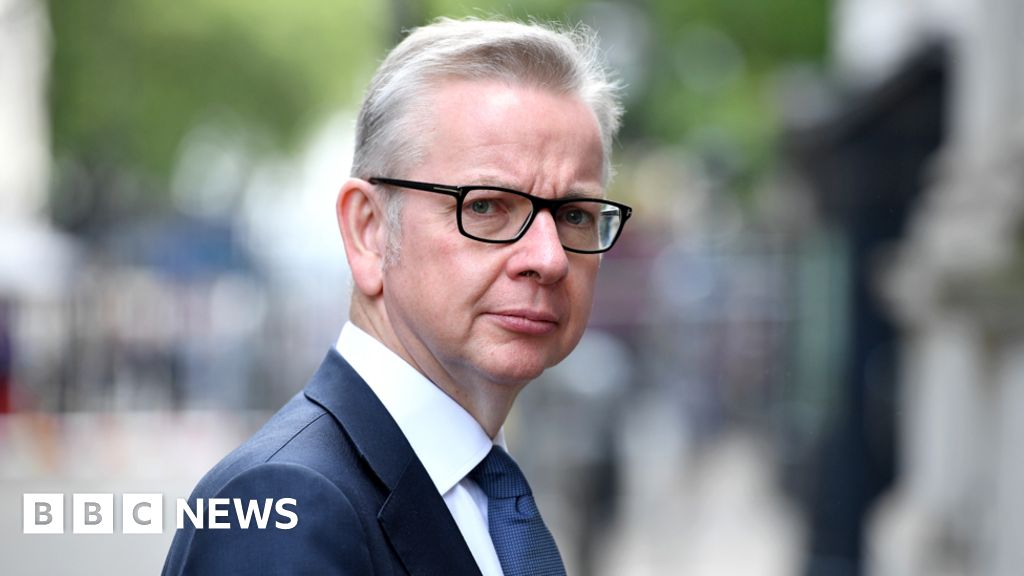Ken elää, se näkee. Itse uskon britien talouden pärjäävän keskipitkällä ajalla varsin hyvin, mutta kuten sanottu, Brexit on paljon muuta kuin taloudellinen kysymys.Totta, ymmärrän tämän pointin, mutta toivon että he käyttävät järkeään ja neuvottelevat sopimukset sillä ilman niitä asia on persillään. Suurlähetystön brosyyrit sanoivat samaa asiaa ja ne olivat ulkoministeriöstä tulleita papereita mitkä kertoivat nykyistä tilaa, tai miten he ovat nähneet asiat viimeisten kuukausien aikana. Sanoma niissä jutuissa oli sama joka ainoassa, eli sopimukseton ero aiheuttaa Briteissä taantumaa ja kriisin oloisen tilanteen.
Install the app
How to install the app on iOS
Follow along with the video below to see how to install our site as a web app on your home screen.
Note: This feature may not be available in some browsers.
You are using an out of date browser. It may not display this or other websites correctly.
You should upgrade or use an alternative browser.
You should upgrade or use an alternative browser.
Brexit ja sen seuraukset
- Viestiketjun aloittaja trolli123
- Aloitus PVM
He eivät voi neuvotella yhtään mitään ennen lokakuun loppua ja irtoamista. EU antoi jatkoaikaa vain maan sisäisten valmiuksien rakentamiseen. Eropäivänä britit vain ilmoittavat, ottavatko Mayn sopimuksen, peruvatko koko eron, No Deal, EFTA (,johon heitä ei lasketa) vai mitä. EU ei enää neuvottele. EU:n ulkopuolellekin on paha neuvotella, kas kun ovat vielä EU:ssä ja sen sopimukset ovat voimassa. Eikä toisaalta ole näyttää, mikä on tila dediksen jälkeen.Totta, ymmärrän tämän pointin, mutta toivon että he käyttävät järkeään ja neuvottelevat sopimukset sillä ilman niitä asia on persillään. Suurlähetystön brosyyrit sanoivat samaa asiaa ja ne olivat ulkoministeriöstä tulleita papereita mitkä kertoivat nykyistä tilaa, tai miten he ovat nähneet asiat viimeisten kuukausien aikana. Sanoma niissä jutuissa oli sama joka ainoassa, eli sopimukseton ero aiheuttaa Briteissä taantumaa ja kriisin oloisen tilanteen.
Muuten. Se yksi ministeri (nainen) kehui Brittien vievän jo nytkin (siis EU:n sopimuksilla) teetä Kiinaan. Hänelle vastattiin, ettei Yorkshiressä kasva teetä vaikka sitä siellä myyntiin pakataankin.
Viimeksi muokattu:
Totta, ymmärrän tämän pointin, mutta toivon että he käyttävät järkeään ja neuvottelevat sopimukset sillä ilman niitä asia on persillään. Suurlähetystön brosyyrit sanoivat samaa asiaa ja ne olivat ulkoministeriöstä tulleita papereita mitkä kertoivat nykyistä tilaa, tai miten he ovat nähneet asiat viimeisten kuukausien aikana. Sanoma niissä jutuissa oli sama joka ainoassa, eli sopimukseton ero aiheuttaa Briteissä taantumaa ja kriisin oloisen tilanteen.
Sopimushan on jo valmiiksi neuvoteltu ja EU:n puolelta hyväksytty. Odottaa vain hyväksyntää brittien puolelta. Saavat edelleenkin vapaasti valita parhaimman vaihtoehdon...
A) pysyä jäsenenä kuten tähänkin asti
B) erota yhdessä neuvotellun sopimuksen mukaisesti
C) erota ilman sopimusta
Toki ymmärrän hyvin sen ettei kysymys ollut alunparinkään eroamisesta.. Lähtökohtaisesti riidellään brittien sisäpolitiikasta, puolueiden voimasuhteista sekä poliitikkojen henkilökohtaisesta asemasta vallan hierarkiassa.
Edelleenkään mikään noista kolmesta vaihtoehdosta ei kelpaa brittien nykyiselle johdolle. Halutaan neuvotella lisää koska nykyiselle pääministerille ei kelpaa edellisen pääministerin aikana tehty erosopimus.
Tämä on juuri niin typerää politiittista pelleilyä kuin se näyttää ulospäin. Käytännössä britanniassa tultaneen järjestämään uusi kansanäänestys eroamisesta..Sen jälkeen alkaa taas uusi ero-/EU:ssa pysymisshow jossa haetaan asemia seuraaviin parlamenttivaaleihin. Mutta pallo on briteillä - valitkoon ja tehköön päätöksensä miten haluavat.
Lisätään vielä tuohon, että mikä kelpaa hallitukselle, ei mene läpi parlamentissa ja päinvastoin.Sopimushan on jo valmiiksi neuvoteltu ja EU:n puolelta hyväksytty. Odottaa vain hyväksyntää brittien puolelta. Saavat edelleenkin vapaasti valita parhaimman vaihtoehdon...
A) pysyä jäsenenä kuten tähänkin asti
B) erota yhdessä neuvotellun sopimuksen mukaisesti
C) erota ilman sopimusta
Toki ymmärrän hyvin sen ettei kysymys ollut alunparinkään eroamisesta.. Lähtökohtaisesti riidellään brittien sisäpolitiikasta, puolueiden voimasuhteista sekä poliitikkojen henkilökohtaisesta asemasta vallan hierarkiassa.
Edelleenkään mikään noista kolmesta vaihtoehdosta ei kelpaa brittien nykyiselle johdolle. Halutaan neuvotella lisää koska nykyiselle pääministerille ei kelpaa edellisen pääministerin aikana tehty erosopimus.
Tämä on juuri niin typerää politiittista pelleilyä kuin se näyttää ulospäin. Käytännössä britanniassa tultaneen järjestämään uusi kansanäänestys eroamisesta..Sen jälkeen alkaa taas uusi ero-/EU:ssa pysymisshow jossa haetaan asemia seuraaviin parlamenttivaaleihin. Mutta pallo on briteillä - valitkoon ja tehköön päätöksensä miten haluavat.
Briteillä on itsetehty sisäpoliittinen ongelma, ja sitä on päätetty korjata ulkopolitiikalla.
Hanski
Respected Leader
Palasin juuri viikon reissulta Skotlannista ja viikon aikana paikallisissa uutisissa ei muuta ollutkaan kuin Brexitiin liityviä juttuja. Joka päivälle riitti uusi Boris Johnsonin palopuhe. Herraa en tunne eikä toimintaa ole tullut aikaisemmin tarkemmin seurattua, mutta nyt tuli vaikutelma, että tuolta herralta en todellakaan ostaisi mitään! (Vrt. vertaukset "ostaisitko tuolta mieheltä käytetyn auton...")
https://www.theguardian.com/politic...it-is-boris-johnsons-central-scenario-eu-toldBoris Johnson has no intention of renegotiating the withdrawal agreement and a no-deal Brexit is his “central scenario”, European diplomats have been told, amid hardening evidence in Westminster that the government is expecting to crash out of the EU.
Brussels diplomats briefed after a meeting between the prime minister’s chief envoy and senior EU figures in Brussels said that Britain’s refusal to compromise was understood to have been clear to those attending.
Instead David Frost, the government’s new chief Europe adviser, is said to have sought discussions on how negotiations could be reset after the UK crashes out on 31 October.
https://www.theguardian.com/busines...perience-worst-july-since-sales-records-beganBritish retailers have recorded the worst month for sales in July since records began, as consumers tighten their belts with Brexit approaching.
According to British Retail Consortium sales data compiled by the accountancy firm KPMG, total sales increased by 0.3% in July, compared with a rise of 1.6% in July last year.
With the British economy facing growing uncertainty, the industry lobby group said the rise was the weakest since its records began in 1995.
Helen Dickinson, the chief executive of the BRC, said low real-wage growth for UK households and Brexit had left consumer spending languishing. The average growth in sales over the past 12 months was 0.5%, the weakest expansion on record.
“Whereas last year’s glorious sunshine and World Cup finals led to strong consumer demand over the summer, this year has been weak in comparison,” she said.
Official sales figures gathered by the Office for National Statistics have proven to be stronger than retail industry surveys have indicated. The volume of goods bought in May increased by 1% on the month, beating City economists’ expectations of a fall in sales.
The BRC and KPMG said that June and July were the worst on record. A separate survey of retailers by the Confederation of British Industry also found sales fell in July, marking the worst period in eight years for the high street.
Barclaycard, which processes nearly half of credit and debit card transactions in the UK as the largest credit card provider, said British families had also begun to rein in their spending on essential items.
It said that consumer spending rose by 1.7% on the year in July. However, sales of essential items – recorded by spending in supermarkets and on petrol – fell by 0.9%.
Esme Harwood, a director of Barclaycard, said: “Spending has remained relatively subdued over the past few months, with an underlying uncertainty about the wider economic and political landscape causing many to hold off making purchases on bigger ticket items.”
Mr Gove, who is responsible for no-deal planning, said he was "deeply saddened" that Brussels was, in his words, saying "no, we don't want to talk".
It comes after the EU said UK demands to remove the Irish backstop from Theresa May's deal were unacceptable.

Brexit: EU 'refusing to negotiate', says Gove
The EU says there is currently no basis for "meaningful discussions", but the UK rejects that view.
ajs178
Respected Leader
Olipa se Suomenkin talouselämä joskus kovastikin integroitu Venäjään, ja moni alan mies piti itsenäistymistä katastrofina elinkeinoelämälle. Ja niinhän se silloin lyhyellä aikavälillä olikin. Tässäkin tapauksessa vasta aika näyttää tämän peliliikkeen järkevyyden. En siis lähde vouhkaamaan suuntaan enkä toiseen ,britit ovat joka tapauksessa päätöksensä tehneet.
Raudusta kotoisin oleva ukkini usein kertoi, kuinka rajapitäjänä Rautu eli Pietarin kaupankäynnistä ja pieneen alle 6000 asukkaan kuntaan oli rakennettu iso rautatieasema Pietarin junaliikennettä varten. Tulla tupsahti 1917-1918 ja eivät junat sen jälkeen enää Pietariin menneet. Kaupankäynti loppui rajan noustua väliin. Mutta rautatieasema oli komea.
Wikipedia osaa kertoa lisää, että Rajan sulkeuduttua maatalous kehittyi voimakkaasti, siitä tuli pitäjän pääelinkeino. Kuuluisiksi tulivat Raudun rotuporsaat, joita markkinoivat ympäri Suomea porsasparisniekat.
Tässä vain esimerkki siitä, että kun yksi mahdollisuus kuihtuu kasaan, voi uusia avautua. En usko, että Brexit on Britannian loppu.
Benelli
Respected Leader
On vielä yksi vaihtoehto; Johnson peruu puheensa ja lähtee Brysseliin pyytämään jatkoaikaa.He eivät voi neuvotella yhtään mitään ennen lokakuun loppua ja irtoamista. EU antoi jatkoaikaa vain maan sisäisten valmiuksien rakentamiseen. Eropäivänä britit vain ilmoittavat, ottavatko Mayn sopimuksen, peruvatko koko eron, No Deal, EFTA (,johon heitä ei lasketa) vai mitä. EU ei enää neuvottele. EU:n ulkopuolellekin on paha neuvotella, kas kun ovat vielä EU:ssä ja sen sopimukset ovat voimassa. Eikä toisaalta ole näyttää, mikä on tila dediksen jälkeen.
Muuten. Se yksi ministeri (nainen) kehui Brittien vievän jo nytkin (siis EU:n sopimuksilla) teetä Kiinaan. Hänelle vastattiin, ettei Yorkshiressä kasva teetä vaikka sitä siellä myyntiin pakataankin.
Kaikkien EU27-jäsenten pitäisi suostua jatkoaikaan. Yksikin ei kaataa jatkon. Ja Brittien temppuiluun ollaan jo aika kyllästyneitä. Lisäksi, eikös heti nykyisen dediksen jälkeen ala tiettyjen korkeiden vakanssien uudet kaudet? Niihin pitäisi nimetä (väliaikaiset) britit. Juu-ei näin.On vielä yksi vaihtoehto; Johnson peruu puheensa ja lähtee Brysseliin pyytämään jatkoaikaa.
Benelli
Respected Leader
Epätodennäköistä kyllä mutta tilanne ei ole niin hirveän erilainen kuin edellistä jatkoaikaa haettaessa.Kaikkien EU27-jäsenten pitäisi suostua jatkoaikaan. Yksikin ei kaataa jatkon. Ja Brittien temppuiluun ollaan jo aika kyllästyneitä. Lisäksi, eikös heti nykyisen dediksen jälkeen ala tiettyjen korkeiden vakanssien uudet kaudet? Niihin pitäisi nimetä (väliaikaiset) britit. Juu-ei näin.
Brittien pitäisi kaiketi suostua siihen että eivät saa uusia vakansseja mutta tämä ei varsinaisesti poikkeaisi tilanteesta jossa lähtevät ilman sopparia tai sopparin kanssa.
Samalla kukaan EU maan johtaja ei ehkä halua mennä historiaan sinä henkilönä joka veti töpselin irti ja pisti hyvän perjantain sopimuksen silppuriin.
Panssari Salama
Respected Leader
Radio Jerevan -kaskujen suurena ystävänä tässäpä joukko Brexit-aiheisia kysymyksiä, joihin Radio Jerevan tapansa mukaisesti tarjoaa napakat ja täsmälliset vastauksensa.
Vitjassa paljon lisää.
Vitjassa paljon lisää.
Coffee Man
Respected Leader
Brexit voidaan nähdä muun muassa populismin ja maahanmuuttopelon sekä niillä ratsastaneiden poliitikkojen voittona, mutta poliittinen strategi Cummings uskoo julkisesti esittäneidensä mielipiteiden perusteella, että EU-ero nimenomaan puhdistaa politiikan.
– Kun maahanmuuttopolitiikka on demokraattisesti kontrolloitua, siitä tulee kakkos- tai kolmosluokan keskustelunaihe, Cummings sanoi vuonna 2017.
Samalla myös hänen halveksumansa äärilaitaa edustava Nigel Farage puolueineen sysättäisiin takaisin marginaaliin. Faragen kaltaisilla poliitikoilla kun ei enää olisi helppoa keppihevosta ratsastettavaksi.


 www.iltalehti.fi
www.iltalehti.fi
– Kun maahanmuuttopolitiikka on demokraattisesti kontrolloitua, siitä tulee kakkos- tai kolmosluokan keskustelunaihe, Cummings sanoi vuonna 2017.
Samalla myös hänen halveksumansa äärilaitaa edustava Nigel Farage puolueineen sysättäisiin takaisin marginaaliin. Faragen kaltaisilla poliitikoilla kun ei enää olisi helppoa keppihevosta ratsastettavaksi.

HBO:lta tuttu brexitin pääarkkitehti uskoo: Kova EU-ero poistaa populismin ja maahanmuuttovastaisuuden myrkyn politiikasta
EU-erokampanjaa johtanut Dominic Cummings näkee EU-erossa paljon hyviä puolia.
Leaderwolf
Respected Leader
Syklit. Ensin se oli pieni, sitten iso, nyt pieni, parisataa vuotta ja voi olla taas iso. Pari nyt kuvittelematonta sotaa se vaatii mutta siinä ei ole mitään uutta tälle pallolle. Mikään ei ikinä kuitenkaan muutu vaikka ihmiset aina niin typeryyksissään kuvittelevat. Ei ole sotaa joka lopettaa kaikki sodat, on vain sota ennen seuraavaa.Boris visioi.
Ison Britannian imperiumi kutistuu kuin pyy maailmanlopun edellä. Jos Skotlanti itsenäistyy ja Irlanti yhdistyy, jäljelle ei jää paljon muuta kuin pikku Englanti.
https://www.theregister.co.uk/2019/08/16/facial_recognition_epidemic_across_private_sites/Facial recognition is being extensively deployed on privately owned sites across the UK, according to an investigation by civil liberties group Big Brother Watch.
It found an "epidemic" of the controversial technology across major property developers, shopping centres, museums, conference centres and casinos in the UK.
The investigation uncovered live facial recognition in Sheffield's major shopping centre Meadowhall.
Site owner British Land said: "We do not operate facial recognition at any of our assets. However, over a year ago we conducted a short trial at Meadowhall, in conjunction with the police, and all data was deleted immediately after the trial."
Silkie Carlo, director of Big Brother Watch, said: "There is an epidemic of facial recognition in the UK.
"The collusion between police and private companies in building these surveillance nets around popular spaces is deeply disturbing. Facial recognition is the perfect tool of oppression and the widespread use we've found indicates we're facing a privacy emergency.
"We now know that many millions of innocent people will have had their faces scanned with this surveillance without knowing about it, whether by police or by private companies.
"The idea of a British museum secretly scanning the faces of children visiting an exhibition on the first emperor of China is chilling. There is a dark irony that this authoritarian surveillance tool is rarely seen outside of China."
Carlo urged Parliament to follow in the footsteps of legislators in the US and "ban this authoritarian surveillance from public spaces".
Kävin tänään antamassa biometriset näytteet EU kansalaisille tarkoitetuun ohjelmaan. Kasvojentunnistus on tulossa joka paikkaan vaikka sitä yritetään hyssytellä ja painaa villasella.
Tämä uutinen saa mut voimaan pahoin. Children of Men maailma on tulossa toteen Briteissä
https://www.theguardian.com/politic...-to-cut-off-free-movement-alarms-eu-nationalsPlans to end freedom of movement for EU citizens immediately after a no-deal Brexit have caused anxiety and confusion among European nationals in the UK, with concerns they could be caught up in hostile environment policies.
Downing Street confirmed rules allowing EU nationals to live and work freely in the UK would end abruptly if the UK leaves the bloc without an agreement at the end of October.
In theory, the rights of EU citizens who have permanent residence in the UK should not be affected and they will continue to be allowed to apply for settled status – granted once they have lived in the UK for five years – until the end of December 2020.
However, news of a possible sharp end to free movement without the transition period envisaged under Theresa May’s administration provoked concern about how at least 2.6 million EU nationals who have yet to apply for settled status would prove they are in the UK legally.
The3million, which represents EU nationals in the UK, said plans by the home secretary, Priti Patel, to impose new border restrictions overnight on 31 October if Britain leaves the EU without a deal were “reckless”.
Nicolas Hatton, a co-founder of the group, said: “Ending freedom of movement without putting legal provisions in place for those EU citizens who have not yet successfully applied through the settlement scheme will mean that millions of lawful citizens will have their legal status removed overnight.”
https://www.bbc.co.uk/news/business-49321597A no-deal Brexit could cost the farming industry £850m a year in lost profits, new research seen by the BBC suggests.
Farm business consultants Andersons said that without government support increasing significantly, some farms would inevitably struggle to survive.
The author of its research described a no-deal Brexit as a greater challenge than the BSE and foot-and-mouth crises.
The government says it will "provide direct support to boost some sectors in the unlikely event this is required".
No tuota ei varmasti tule tapahtumaan. Boris on kerta toisensa perään sitoutunut brexitin toteuttamiseen. Nyt sitten globalisteilla on löysät housuissa pelätessään, että brexit ei osoittaudukaan maailmanlopuksi vaan osoitukseksi, että nykylinjalle on myös muitakin toimivia vaihtoehtoja.On vielä yksi vaihtoehto; Johnson peruu puheensa ja lähtee Brysseliin pyytämään jatkoaikaa.
Kaupankäynti loppui rajan noustua väliin. Mutta rautatieasema oli komea.
Benelli
Respected Leader
Boris on politiikko ja lisäksi on kerta toisensa perään sanonut lähtevänsä mieluummin sopparin kanssa kuin ilman mitä varten jatkoaika on logistinen välttämättömyys.No tuota ei varmasti tule tapahtumaan. Boris on kerta toisensa perään sitoutunut brexitin toteuttamiseen. Nyt sitten globalisteilla on löysät housuissa pelätessään, että brexit ei osoittaudukaan maailmanlopuksi vaan osoitukseksi, että nykylinjalle on myös muitakin toimivia vaihtoehtoja.
Ja mitä käytännön merkitystä jollain kolmen kuukauden lisäajalla olisi kolmen vuoden jahkailun jälkeen?
Epätodennäköistä muttei 100% mahdotonta. Tottakai nykylinjalle on toimivia vaihtoehtoja sitten kuten britit päättävät siitä mitä he oikein haluavat.
